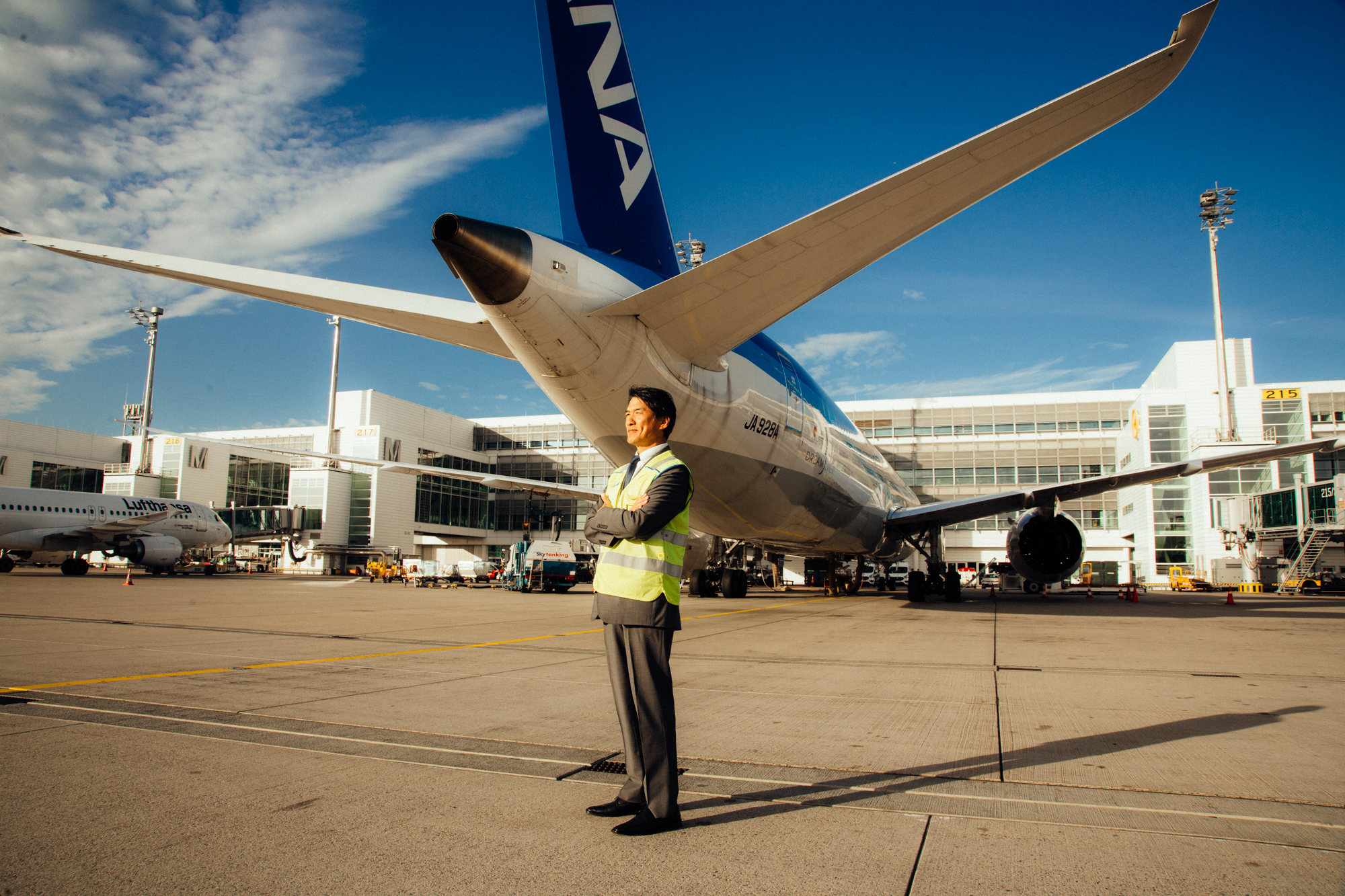With its printers and scanners, Kyocera Document Solutions has made its way into the offices of many German companies. But people are printing less and less – also at work. How is the company responding to a changing market? And what role does the Kyocera corporate philosophy play here? Those are some of the issues we discussed with Dietmar Nick, Managing Director of Kyocera Document Solutions in Germany.
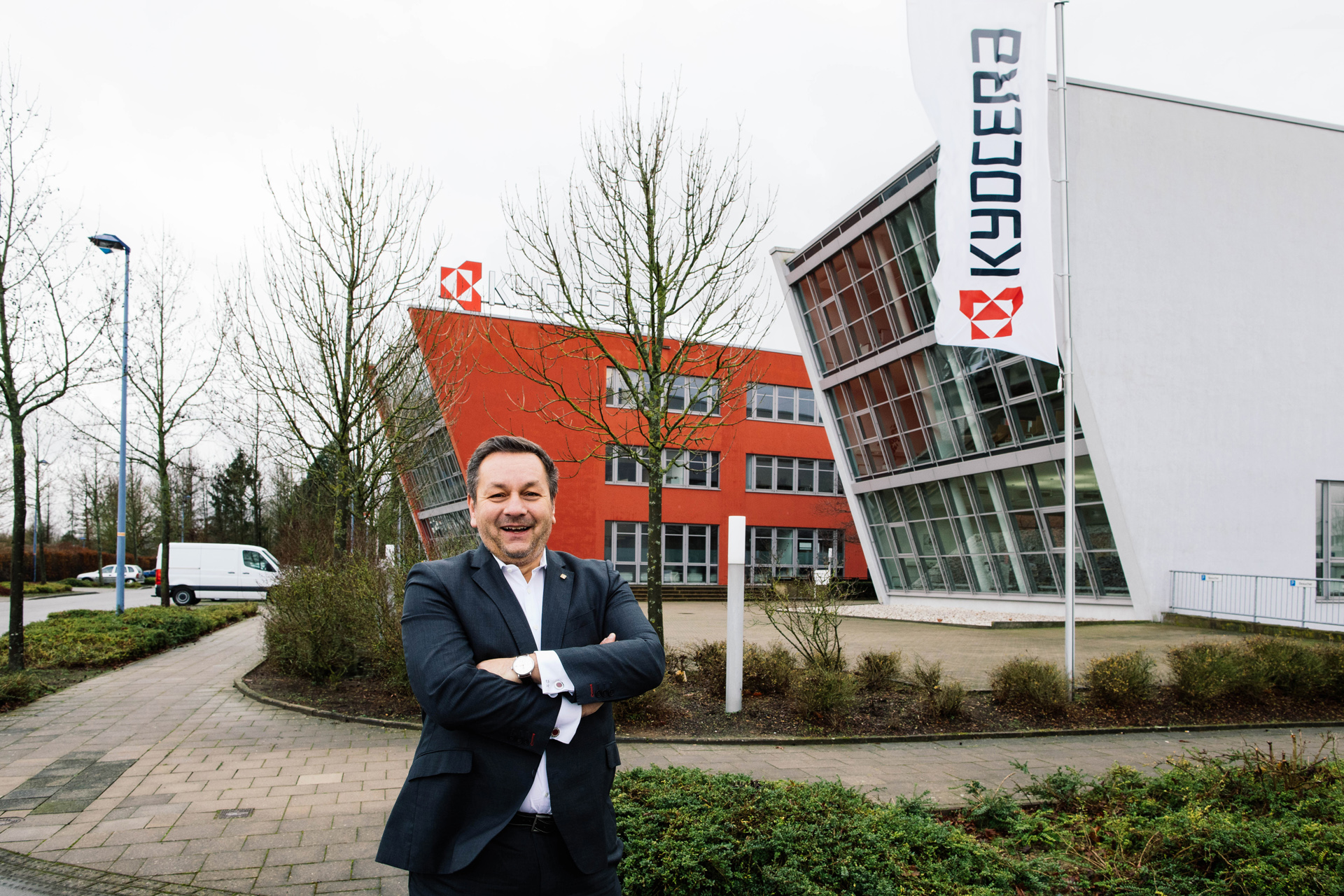
J-BIG: Mr. Nick, how would you describe Kyocera to readers who are not familiar with the company?
Dietmar Nick: The name Kyocera comes from KYOto CERAmic, and that already says a lot about the company. Our roots lie in the ceramics industry – still an important business area for Kyocera today. The company was founded a good 60 years ago by a young man named Kazuo Inamori, now a celebrated entrepreneur in Japan. Nowadays, Kyocera as a corporation encompasses a highly diversified portfolio: Ceramic components, for example for the automotive industry, are still among our core competencies, but so are optical components, semiconductors, and also “Document Solutions.” We even make some consumer products, like ceramic knives. In this sense, we are a classic Japanese diversified corpration.
As a Group, we employ around 77,000 people in 248 local offices and generate around 13 billion euros in global sales. Document Solutions accounts for 23 percent of this, more than any other business unit. Headquartered in Osaka, our business segment employs approximately 22,000 people in 84 individual companies, with around 38 sales offices worldwide.
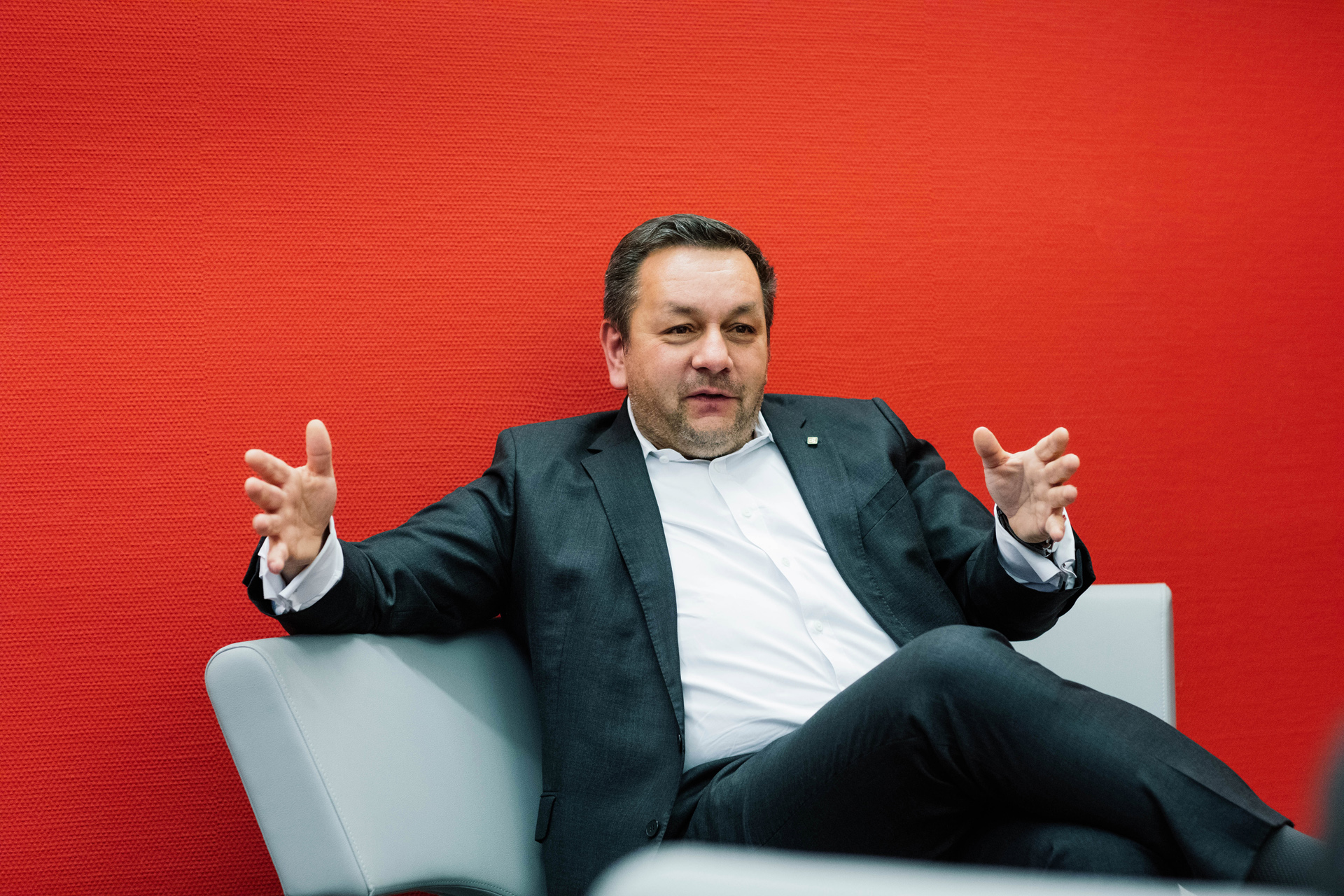
J-BIG: How is Kyocera positioned in Germany?
Dietmar Nick: The headquarters of Kyocera Document Solutions Deutschland GmbH is here in Meerbusch. We are also responsible for our Austrian subsidiary in Vienna, our software subsidiary AKI in Würzburg, and the company Alos in Cologne, which we acquired in 2018.
In addition, there’s Kyocera Europe GmbH in Esslingen, which primarily deals in optical components for the supplier industry. This is a completely different business than in the Document Solutions division: You will never see the name “Kyocera” in the end product here, as the components are fully embedded in the end product. The setup is therefore somewhat different, as well: All European business is managed in Esslingen, with our own research and development department and a few colleagues from Japan on site. We don’t have anything like that here – I witnessed the last Japanese managing director in 2001, and since then, we have been fully under German management. Basically, we are a straightforward sales subsidiary, even though we are currently increasingly moving into the service sector. We employ around 260 people locally, primarily in sales, service and marketing.
J-BIG: What role does the German market play for Document Solutions in particular?
Dietmar Nick: Germany is a very important market for us. Of the total three billion euros that Kyocera Document Solutions generates globally, approximately one billion comes from Europe, one billion from North America and another billion from the rest of the world. Of this amount, the German subsidiary accounts for around 300 million euros. This makes us the largest sales company in Europe and also one of the top players worldwide.
We also have a very high level of expertise in marketing and the greatest brand awareness outside of Japan. A quarter of all printing and copying systems in Germany are sold by Kyocera. This success is also noticed in Japan: When Japanese managing directors are appointed to European subsidiaries, one of their first official acts is to visit us in Meerbusch. The colleagues value our advice; they are keen to discuss how we have organized ourselves and what we are doing.
J-BIG: Why do you think Kyocera Document Solutions is particularly successful in Germany?
Dietmar Nick: Well, we are just exceptionally good! But in all seriousness, one reason why the German market is so attractive is that the structure is different from that in France or Spain, for example. There, you have one or two major economic centers, with much weaker industry and infrastructure in the rest of the country. Even in Austria, which also falls within our area of responsibility, Vienna generates 60 percent of the gross national product. Whoever dominates this center also dominates the market.
In Germany, by contrast, we have a much more decentralized, fragmented market. This requires a completely different approach: It’s not enough to conquer Berlin or Munich, you need to understand the market in Dresden as well as the one on Sylt. That means we have to think much more locally and act flexibly. In Japan, the situation is similar, by the way: They also have a federal system with multiple highly populated megacities such as Osaka, Kyoto, Nagoya, and Tokyo. This is another reason why our Japanese colleagues are particularly interested in our approach in Germany – the market strategy is similar. In order to maintain regional proximity, we rely exclusively on partner business in the B2B environment, for example. Even if you wanted to, I couldn’t sell you a printer, but would have to refer you to the nearest dealer. If I were managing director in France, I would have to set things up completely differently.
J-BIG: In Germany, you are known primarily for printers and copiers, and are very successful with them. Does this business area still have a future?
Dietmar Nick: In the long term, we expect demand in this area to fall – even though, in my opinion, we are still miles away from the paperless office. At the moment, the media industry in particular is feeling the effects of this development: We are seeing lower print runs and more online offerings everywhere.
On the other hand, one of the first things many employees did after shifting to working from home during the first Corona lockdown was to buy a new printer. Here, we could clearly see that what people take for granted in the office, they suddenly miss in the home environment – although the resulting proliferation of devices poses a number of problems from an IT security and data protection standpoint. We see a similar trend in the private sphere, for example with photographs: Photo books or digital photo printers are very popular at the moment. Printed documents allow a more thorough interaction and provide order and clarity at the same time. How many of us have long since lost track of the thousands of pictures on our smartphones?
In my opinion, the printer business is far from becoming obsolete, but it is tied into an overarching task: document management. This is where we see the future of Kyocera Document Solutions going – not just in Germany.
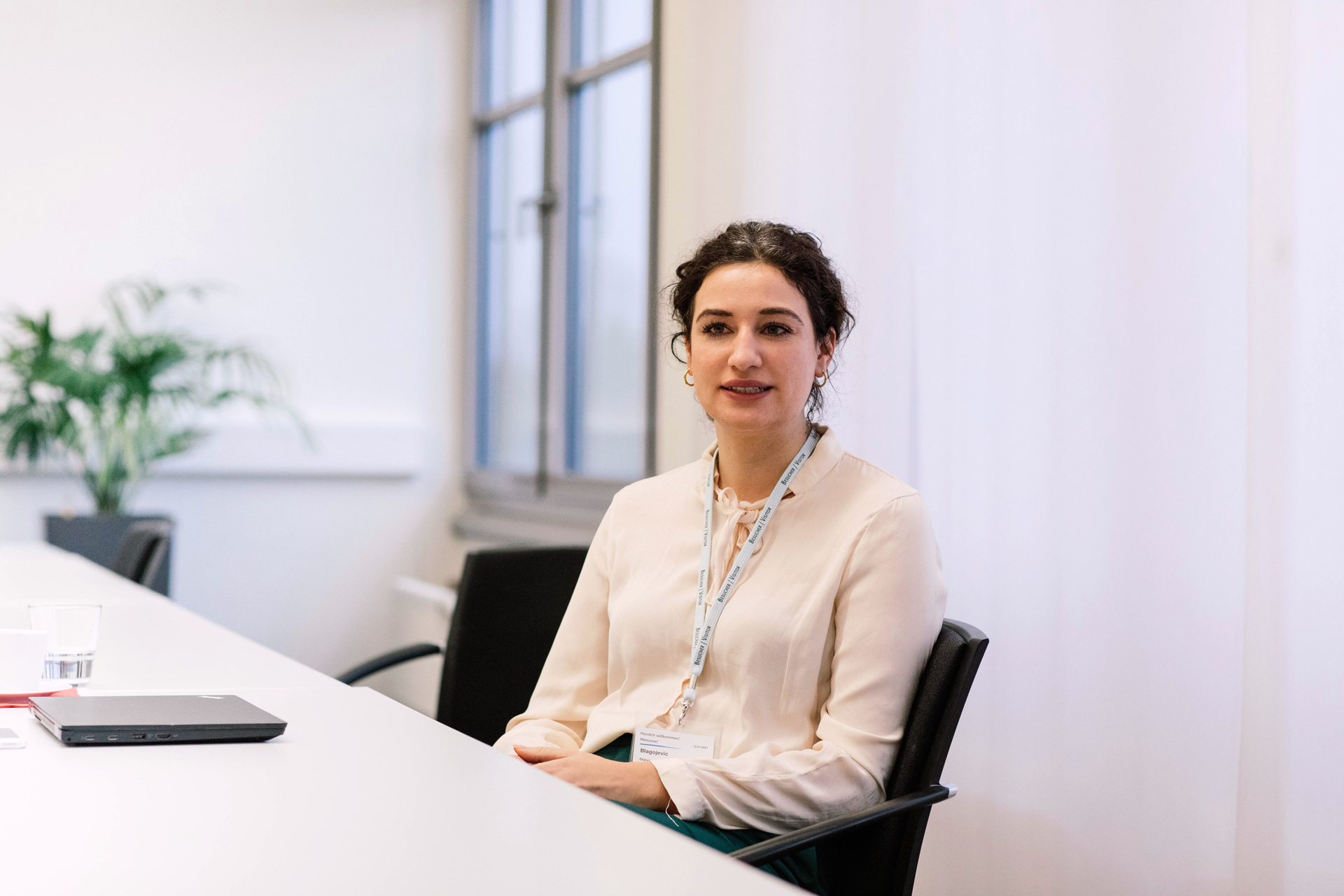
Free Subscription
“J-BIG – Japan Business in Germany” is the e-mail magazine dedicated to Japanese companies and their business activities in the German market.
J-BIG: What exactly do you mean by document management? Where do Kyocera solutions come into play here?
Dietmar Nick: The basis is a simple but nevertheless central insight: It’ not the format of the document that’s important, but the information it contains. Processing this correctly and effectively is the actual task of any form of document management.
In the vast majority of offices, there is currently a mixture of digital and analog documents. And digital documents deserve just as much attention as a haptic, printed sheet of paper. They have to be stored, and it must be possible to search for and find them. This requires not only the right software, but also new processes and workflows.
In the future, a typical scenario could look like this, for example: An employee arrives at the office and realizes that he no longer receives any haptic letters or invoices – because they have been issued digitally or have already been scanned by the accounting department. With the right software, all central information has been prepared in such a way that it is recognizable at first glance and functions in an integrated manner with all subsystems. For example, employees can see in their taskbar that a supplier’s invoice is due soon and which stations it has already passed through. The invoice has already been automatically read into the ERP system, the billing details have been transferred, and everything is ready to be posted. This not only saves time, but also eliminates typical errors that occur during manual data transfer. And in the end, everything is archived in such a way that the employee can find the document again even years later – including information on when it was last opened and by whom.
With our solutions, we can manage this entire process. Our hardware acts as a kind of gateway between the analog and digital worlds. In between is our software, which processes the documents, applies artificial intelligence to them, forwards them to the relevant subsystems and, if necessary, picks them up again and stores them correctly. Through our acquisitions in recent years, we have gained a great deal of expertise in this area – the company Alos in Cologne, for example, is an expert in information processing during scanning. The software can even recognize and process handwritten texts.
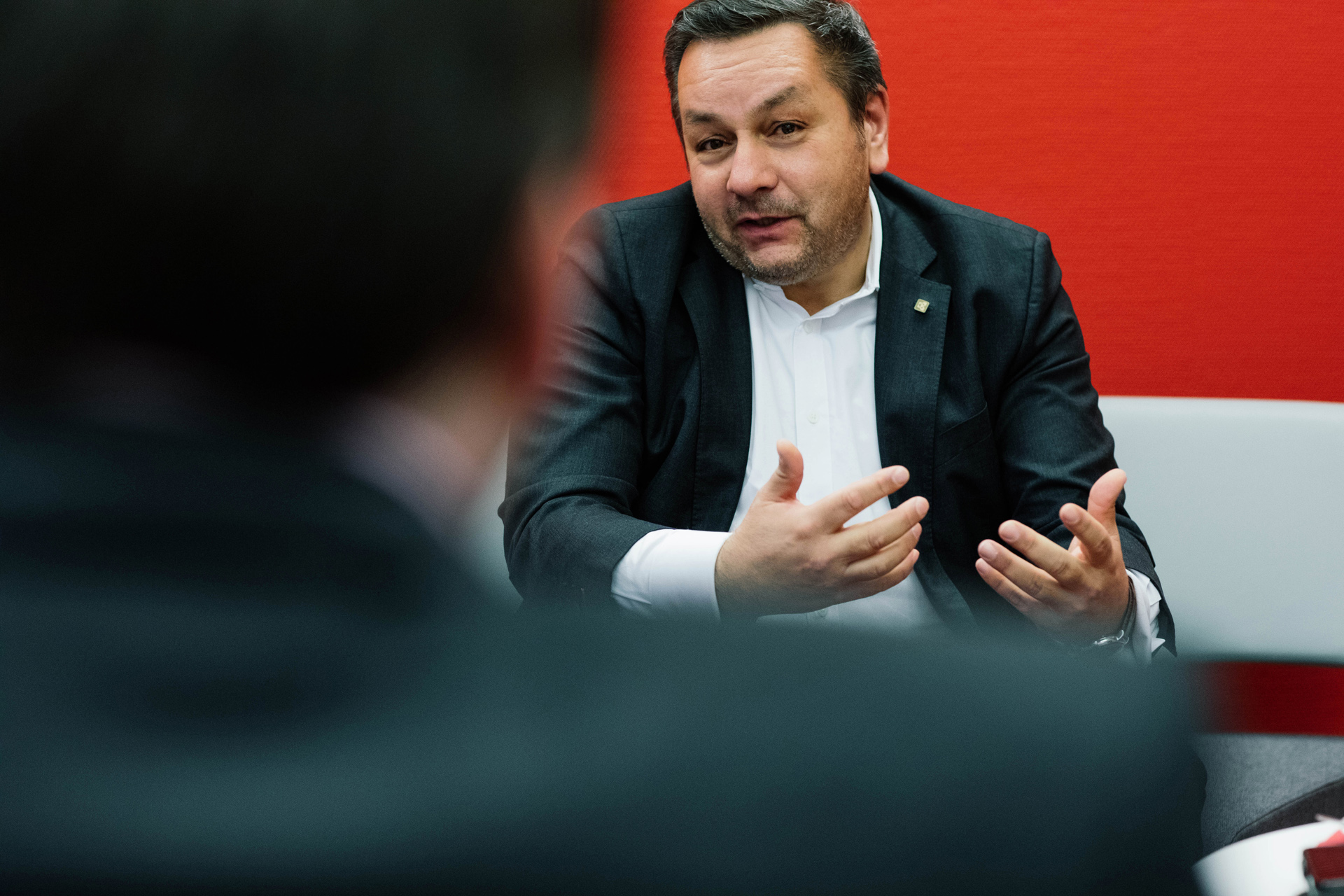
J-BIG: A far-reaching repositioning – what does this change mean for Kyocera?
Dietmar Nick: We are actually coming from a very comfortable situation – as a specialist in printing and scanning solutions, we are an established name in Germany, not least because of our sponsorship activities with Borussia Mönchengladbach. In our segment, we are among the market leaders, and of course our goal is to transfer this “friendly strength,” as we call it, to the field of document and information management as well.
However, the path to this goal is not an easy one. We ultimately have to transform our business from a hardware to a software-oriented sales unit – without neglecting our current core business too much. And we also have to be careful to bring both customers and employees with us on this journey. Where we used to dispatch hardware experts with a screwdriver, we increasingly need employees who can maintain software and are familiar with SAP and cloud environments. To ensure this, we have set up an extensive learning program. In this way, we hope to instill this new mindset in the heads of our employees.
Another challenge is that document management is a very local issue – data protection regulations, for example, are different in every country, and that affects the services we have to offer. Of course, this also means that there will be different views locally. What we do in Germany may not be right for the French market. So we are diversifying strongly into the countries, especially in software customizing. This is a new development for the Group, but fortunately we have a lot of backing and trust from Japan.
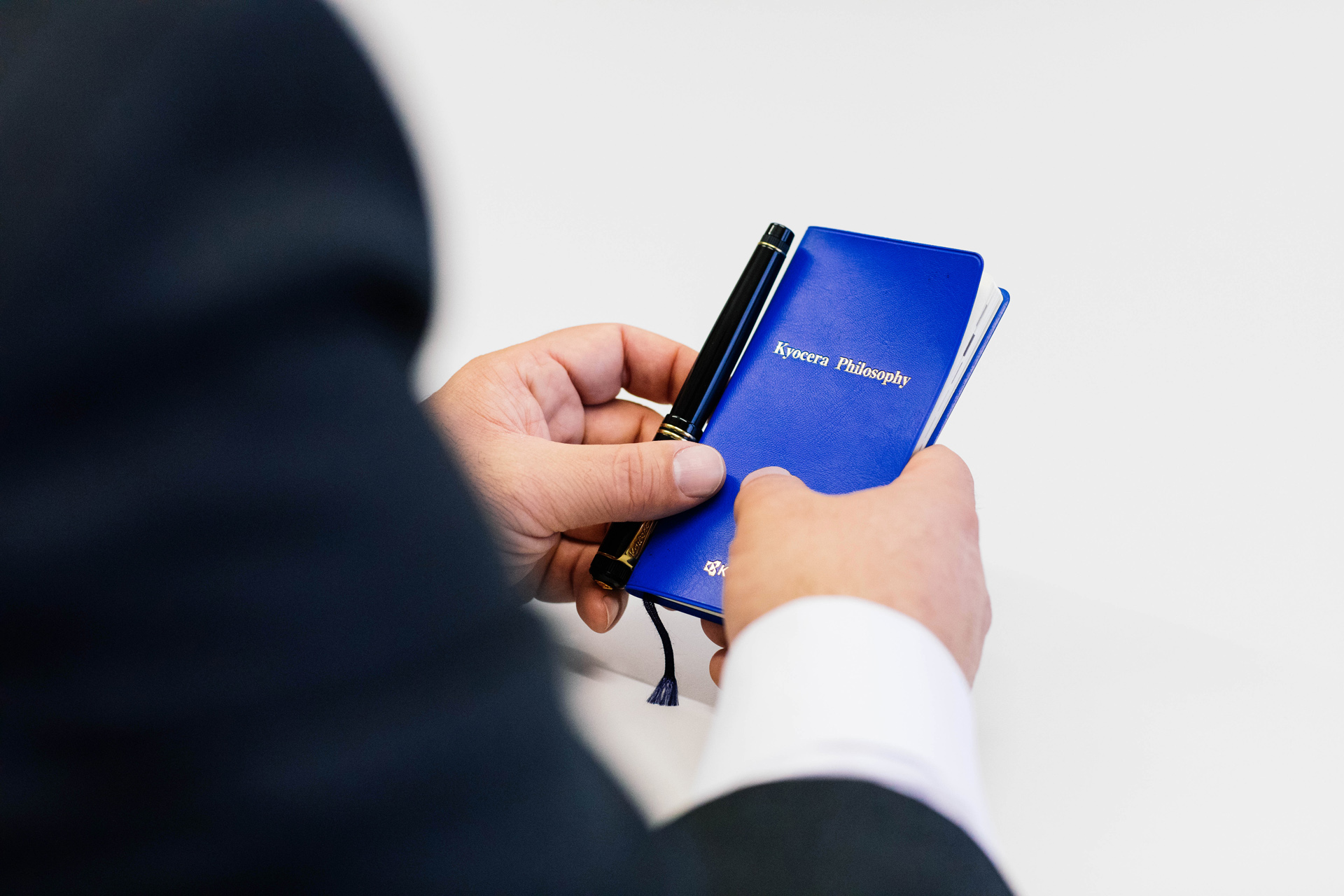
J-BIG: How would you describe the relationship between Kyocera in Japan and Germany?
Dietmar Nick: The relationship is very familial – coincidentally, our employee magazine is also called “Kyocera Family”. And just like in a family, we have a good mix of support and freedom. We run our business in Germany very independently of headquarters and can make our own decisions. This “amoeba structure” – a term coined by our founder Kazuo Inamori – is an integral part of our corporate culture. Especially in sales, the principle of “local people for the local market” is indispensable. For me as a managing director, this is very valuable, because it allows me to steer the company in the way I think is right locally.
The downside of this amoeba structure is perhaps that there is less exchange going from Europe to Japan – we do have the classic expats from Japan, but it is the absolute exception that managers from Europe go to Japan for longer periods of time. I was in an experimental group myself and was supposed to move to Japan for a while with my whole family. But then the tsunami and earthquake hit in 2011, and afterwards the timing was no longer right for my family. At the moment, such initiatives are unfortunately a bit on hold.
J-BIG: Many Europeans sometimes find it difficult to deal with the Japanese management style. Do you also experience this in your direct exchanges with Japan?
Dietmar Nick: Of course, we also have the usual challenges that come with working in a Japanese company: Lengthy discussions in which every aspect is scrutinized very closely, and an attention to detail that goes far beyond even the proverbial German perfectionism.
In recent years, however, we have also noticed a generational change in Kyocera’s management. While just a few years ago, simultaneous interpreters were needed at all international meetings, now everyone presents in English, right up to the board of directors. The management style is also changing, especially in dealing with subsidiaries outside Japan. Strongly hierarchical structures might still play a role within the Kyocera community in Japan, but outside of it, interaction is less formal.
This internationalization is a positive development, but it also means that visits to Japan are becoming less frequent – international meetings now sometimes take place in Los Angeles or Dubai. But when we do go to Japan, we notice the warmth and the care with which events like customer visits are prepared. Then we see that Japanese meticulousness also has a very positive side.
J-BIG: Visits are not possible at the moment. What do you miss most about your trips to Japan?
Dietmar Nick: Let’s leave aside the good food in Japan – even though that is indeed something that I miss very much. Even more important is the personal interaction. You often hear that video conferencing is the method of the future, saving time and money on travel. I think they’re terrible, though, because they don’t transmit emotions. Contrary to what some people in Germany believe, our Japanese colleagues are also people who show emotions – just in a different way. For us Germans, these are sometimes difficult to interpret even in personal interaction. This is even more true for digital conferences, where many colleagues are unable to assess the current mood in the meeting.
In addition, Japanese didactics thrive on repeating and simplifying content; a principle that also governs many meetings. However, video conferences are a very sharp medium: After one hour, it’s over. There is often no room for reflection or repetition, and no debriefing over a beer, where the final decision is often made. In addition, there is the time difference: One side is pretty much always tired. The last board meeting with Japanese colleagues took place on a Friday at six in the morning. By 12 o’clock, you just want to be back in bed. All in all, this situation means that some decisions are more time-consuming than usual. We even deliberately delay some topics until personal meetings become possible again.
However, I must also say that the Group has adapted very quickly to the new situation. Here in Germany, we were able to work from home from day one, although this is not very common in Japan. Again, we can decide locally what we think is right for the German market. And the family concept was also immediately noticeable in this crisis situation: The top priority is the safety of our employees, especially in Corona times. We in Europe were immediately supplied with masks and disinfectants from Japan. Our colleagues in Italy and Spain in particular were very grateful for this help. And there were management meetings to discuss where and how our colleagues from Japan could be of further assistance. That’s an amazing thing, and it gives you the good feeling that you can get through this time relatively unscathed, despite all the difficulties.
When it’s all over, these last one and a half years of Corona will have been just that: one and a half years in a company history spanning more than 60 years. Kyocera has been through many crises in its history – the oil crisis in the 1970s, the Lehman Brothers shock in the 2000s, and now Corona. We have survived all of them so far, not least thanks to the backing from the Japanese headquarters.
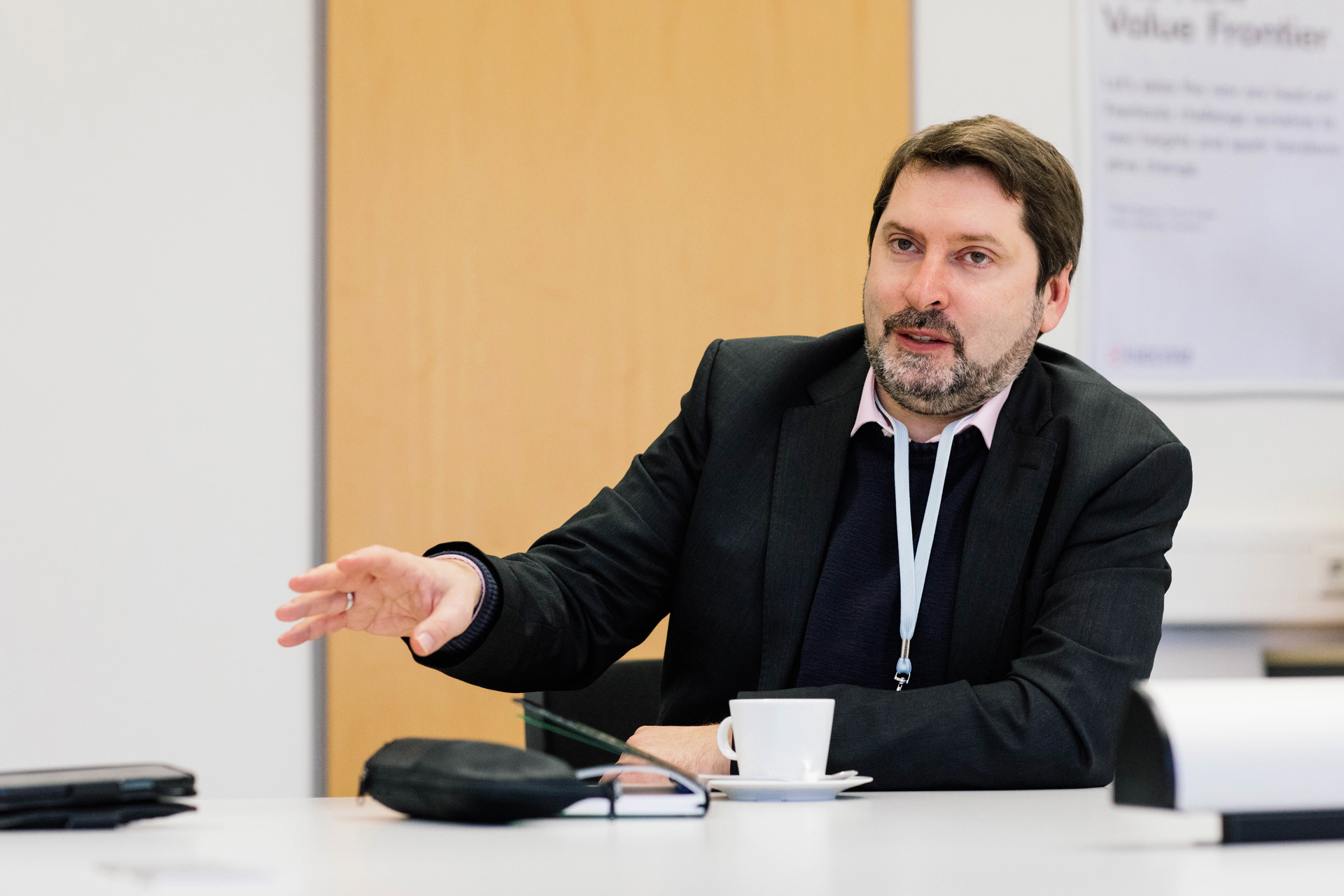
J-BIG: Despite this freedom, does Japanese culture play a role at Kyocera Document Solutions in Germany?
Dietmar Nick: A very big one, in fact. We are strongly influenced by the Kyocera corporate philosophy. The term “purpose” is currently being bandied about in all the business media, but in our case, it was formulated decades ago by company founder Kazuo Inamori: Kyocera’s primary goal is to ensure that our employees can grow intellectually and financially and thus contribute to a better society. That may sound a bit pretentious, but what better purpose can a company really have?
We fulfill this purpose on the one hand through our technologies and on the other hand through the way we deal with people. Like many Japanese companies, we have a clearly formulated Kyocera philosophy, and we managers carry it with us at all times in the form of a small booklet. One important guiding principle, for example, is “Do the right thing as a human being,” in other words, as a manager or employee, let any decisions you make be guided by what is humanly correct – before any economic considerations. This sounds abstract at first, but it becomes very practical when we talk about organizational changes or the introduction of new programs, for example. We also receive intensive and regular training in how to put these principles into practice and what they mean for our day-to-day work.
J-BIG: What does such a training look like?
Dietmar Nick: All managers attend a European management philosophy seminar twice a year. Here, all managers come together for two days – not to talk about sales figures and strategies, but about the interpretation of various themes and principles of our corporate philosophy. What does a certain guiding principle mean for a factory worker in the Czech Republic, what for a sales employee in Germany? There are very intensive discussions, and the Japanese top management provides guidance and answers even critical questions very openly. After 20 years in the company, I still find it remarkable that a global corporation is devoting such an investment to the topic of corporate culture and philosophy.
We then pass on the results of these workshops to our employees in local philosophy seminars. In many places, we also have 15-minute morning meetings in which a sentence from our philosophy is read out loud and discussed. For example, “Always be creative” – then employees tell us in 10 minutes where they have recently found creative solutions. At the same time, we ensure a transparent flow of information. Nowadays, management consultants sell this kind of thing as the high art of management – Kyocera has been doing it this way for decades.
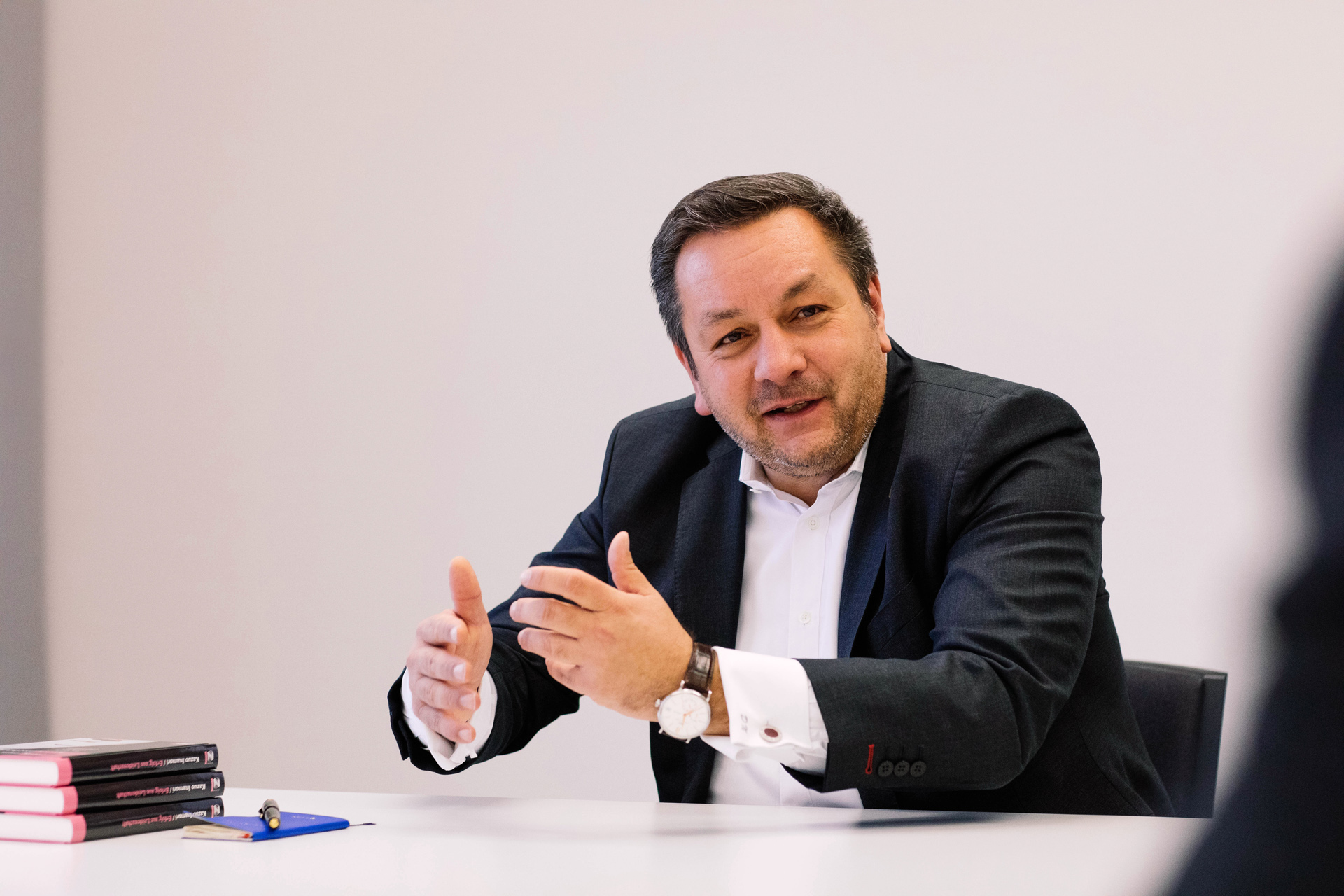
J-BIG: What was the last guiding principle you discussed with your team?
Dietmar Nick: “Always possess a fighting spirit”. We live in challenging times, and that’s precisely why we must not forget one thing: No matter how difficult things get, we must always keep going. We must find creative answers to the complex questions of our time and test them every day to see if they hold up.
The past year has thrown up many personal, economic and health-related obstacles for all of us. But looking back, this situation has also unleashed a great deal of creativity at Kyocera. We have found new ways to interact with customers – a virtual roadshow would have been almost unthinkable a year ago, for example. We were forced to scrutinize all our workflows and processes and, if necessary, revamp them. That helped us a lot and in some cases led to completely new approaches.
Not all the solutions will endure in the future, but this process of intensive examination was, in my view, a big and important step.
J-BIG: Besides technology and philosophy, is there anything else that sets Kyocera apart?
Dietmar Nick: One point that is very important to us is sustainability: We are striving to become the most sustainable manufacturer of document output management solutions, and we are well on our way. We are currently the only manufacturer that CO2 neutralizes every printer and all consumables as standard. This means that everyone who uses our devices automatically contributes to CO2 neutrality.
Sustainability is also one of the central principles of our company philosophy: The environment and CSR have been part of our thinking from the very beginning and are firmly rooted in our DNA. Our company motto is: “Respect the divine and love people”. In essence, this means that we always deal with resources and people in a responsible and respectful manner.
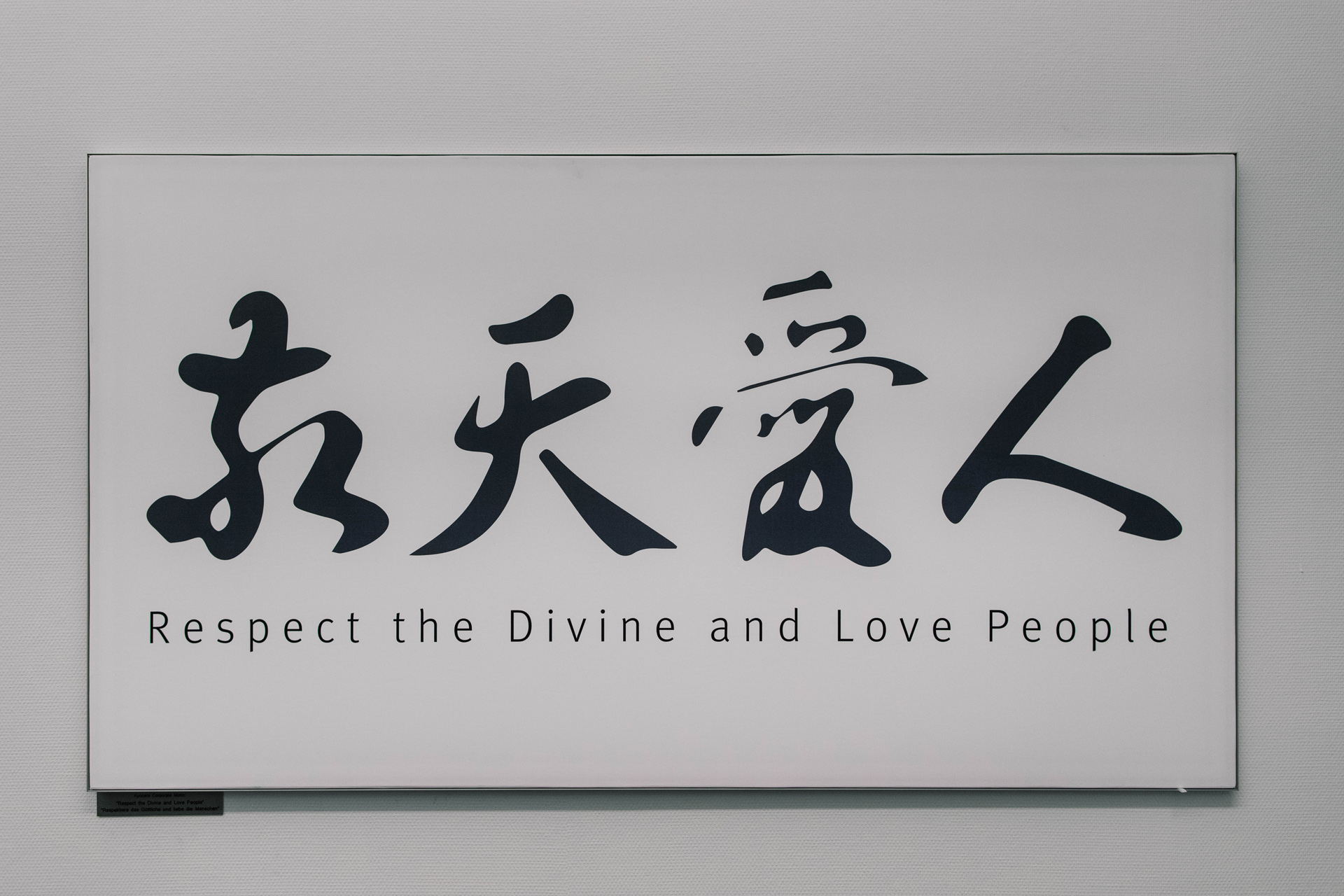
J-BIG: What advice would you give to Japanese companies that want to venture into Germany?
Dietmar Nick: First of all, I would say: Take the plunge. Due to the economic and political conditions, Germany is the most attractive country to enter the European market. The infrastructure is good, and processes are usually very well organized – sometimes we might overdo it a bit with the bureaucracy, but that’s still better than the alternative. And finally, I would advise any company that wants to set up a sales department to get colleagues on board who know the local market well.
J-BIG: What do you wish for Kyocera in the future?
Dietmar Nick: My main wish is that we succeed in completing the transformation process toward document management – especially for our employees. Kyocera’s top priority will always be to ensure that our employees are comfortable and that we in some way make our society a little bit better. We help ensure that hospitals print securely, that documents don’t get lost, that company secrets don’t fall into the wrong hands. All of this contributes to improving the lives of all of us. That’s the big vision we have for the coming years and decades.



